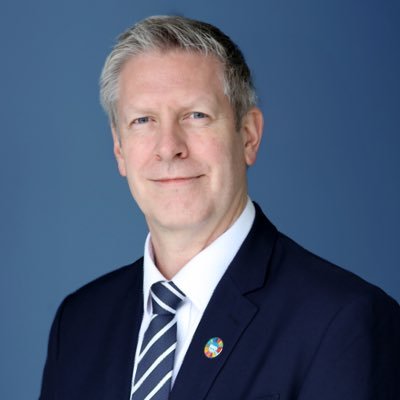
About
programmes
research




Mr. Fredrik Haag has a background in applied environmental research, focusing on marine and coastal zone management, and holds several postgraduate degrees; an MSc in Earth Sciences and a Licentiate of Philosophy (Phil. Lic.) in Environmental Impact Assessment from Uppsala University, Sweden, as well as a Master in Maritime Affairs from the World Maritime University.
Mr. Haag joined IMO in 2006, and represents IMO in several UN wide processes, and has been deeply involved in matters related to the 2030 Agenda for Sustainable Development and the SDGs, Biodiversity in Areas Beyond National Jurisdiction (BBNJ), as well as the Joint Group of Experts on Scientific Aspects of Marine Environmental Protection (GESAMP). As head of the Office, his primary task is to support the implementation of the London Convention and Protocol on dumping of wastes and other matters at sea, but he is also involved in IMO’s work on PSSAs, marine litter, noise and ship-strikes. He has also contributed to work on GHG emissions from ships and Ballast Water Management.
Mr. Fredrik Haag has a background in applied environmental research, focusing on marine and coastal zone management, and holds several postgraduate degrees; an MSc in Earth Sciences and a Licentiate of Philosophy (Phil. Lic.) in Environmental Impact Assessment from Uppsala University, Sweden, as well as a Master in Maritime Affairs from the World Maritime University.
Mr. Haag joined IMO in 2006, and represents IMO in several UN wide processes, and has been deeply involved in matters related to the 2030 Agenda for Sustainable Development and the SDGs, Biodiversity in Areas Beyond National Jurisdiction (BBNJ), as well as the Joint Group of Experts on Scientific Aspects of Marine Environmental Protection (GESAMP). As head of the Office, his primary task is to support the implementation of the London Convention and Protocol on dumping of wastes and other matters at sea, but he is also involved in IMO’s work on PSSAs, marine litter, noise and ship-strikes. He has also contributed to work on GHG emissions from ships and Ballast Water Management.